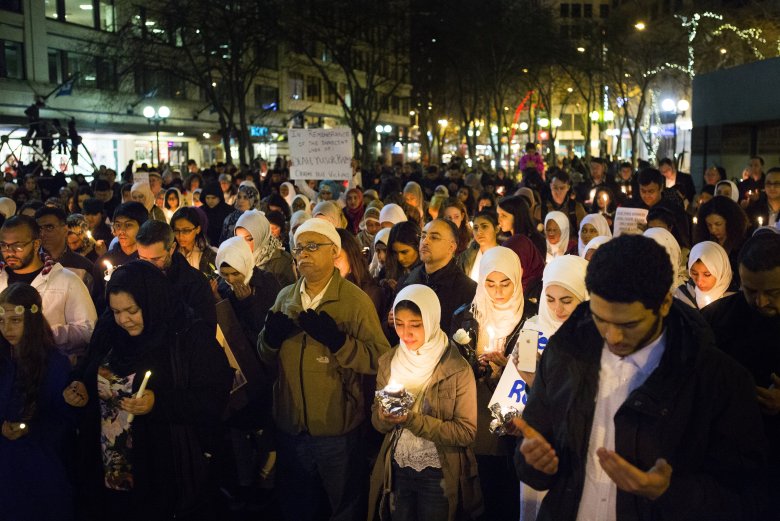
RNA - Trump’s declarations about Muslims on the campaign trail came at a time when Muslims were already experiencing a rise in anti-Muslim activity.
“Definitely it’s been shocking," said Varisha Khan, a University of Washington student and a member of the Electoral College for Washington state.
“When hate speech goes unchallenged and it goes unchecked, it fosters an environment that leads to hate crimes.”
Arsalan Bukhari, director of the Council on American-Islamic Relations in Washington said 2015 was a year when CAIR offices received the highest number of reports of anti-Muslim hate crimes ever.
Trump’s election caused a flurry of calls.
“Some questions we got were from moms and dads asking whether they should send their kids to school today,” he said. “Many women who wear headscarves were asking whether it’s safe to go outside."
Bukhari said the answer was yes.
Khan wears a headscarf and intends to “still go about my everyday life, to give back to society, which is the prophet Mohammed, peace be upon his teaching, which is my faith.”
Bukhari said the wider community can help American Muslims feel safe. “Fellow Americans need to see their Muslim neighbors as American,” he said, by telling themselves and others that they are all in this together.
847/940